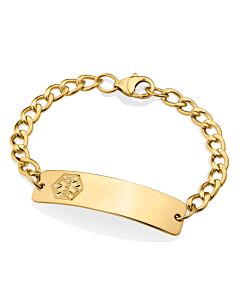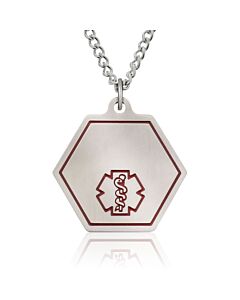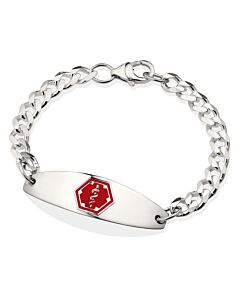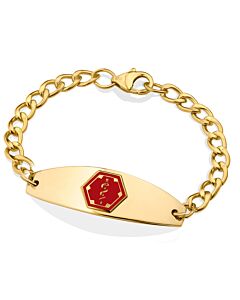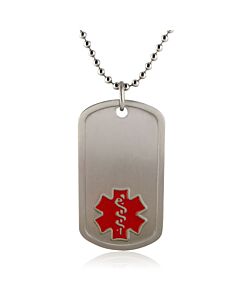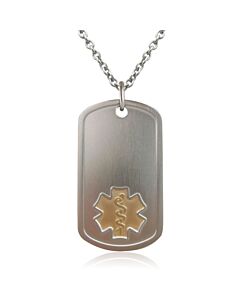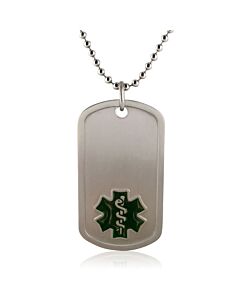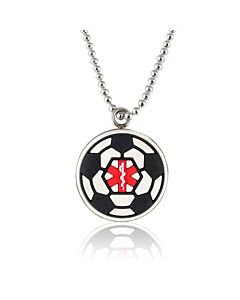

Down Syndrome ID Bracelets, Necklaces & Jewellery
Approximately one in every 700 babies are born with Down syndrome. Not all Down Syndrome are the same and each person can have a different type of Down Syndrome: Trisomy 21, Translocation Down Syndrome, or Mosaic Down Syndrome.
"Each person with Down Syndrome has different talents and the ability to thrive." - Centers for Disease Control and Prevention
Children with Down syndrome and autism have a much greater chance of wandering, increasing their risk of a variety of injuries. It is recommended to purchase a down syndrome bracelets for adults and children (babies, toddlers and teenagers) to help advocate and protect them in a medical emergency.
Related medical conditions or comorbidities may also present themselves with Down Syndrome.
Some of these serious medical conditions or risks include:
- Congenital Heart Defects
- Gastrointestinal Malformations
- Sleep Apnea
- Thyroid Disease
- Celiac Disease
- Autism
- Seizures
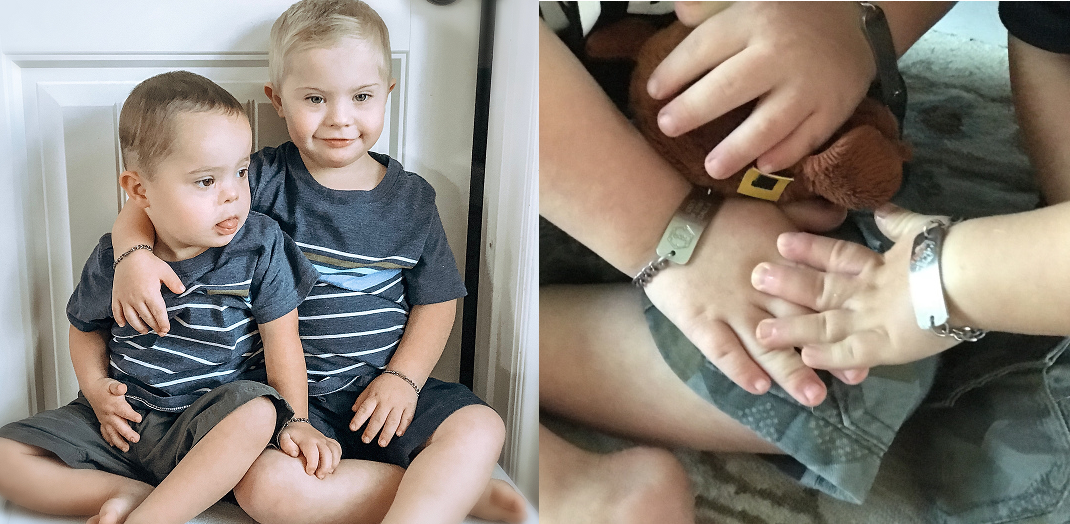

"Wandering, running off, or the clinical term, elopement, can be a frightening and fairly common behavior seen in children with Down syndrome. After one scary incident we decided to order an ID Bracelet as added protection should their propensity to wander and run off ever lead to one of our biggest fears, losing them. A Medical ID bracelet is such a simple step we can take to help our boys in a moment of crisis." - Kelsi Romero, Downright Wonderful
Communicating Down Syndrome and Related Conditions in an Emergency
Social skills may be impaired for some individuals with Down syndrome and some individuals living with this condition may have difficulty with communication, including limited speech and language. In an emergency, Down Syndrome patients are more susceptible to overstimulation, agitation, confusion or misunderstanding.
Information about a person’s Down Syndrome can save a life. According to EMS World, it is important for EMS providers to recognize the basic elements of many disabilities. A medical ID bracelet or necklace can help EMS providers obtain as much additional medical information when patients are unable to speak for themselves.
Important considerations for Down Syndrome patient emergency care include:
- Associated medical problems
- Possible sensitivity to medications
- Physical anatomy or features that may affect airway
- Risk of atlantoaxial dislocation due to cervical spine instability
- Other challenges that might not be evident upon initial assessment
What to Engrave on a Down Syndrome Medical ID
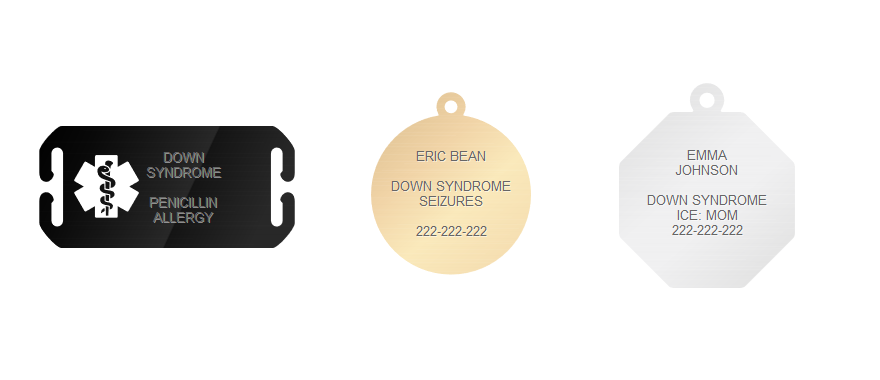

Medical IDs can be worn in the form of a bracelet or necklace. These options are important for wearers with Down Syndrome who are unable to tolerate a bracelet but like wearing a necklace and vice-versa.
- Wearer's name for quick identification
- Down Syndrome and other medical conditions
- Medications
- Medical devices such as pacemaker or hearing aid if any
- Food and/or drug allergies
- In Case of Emergency (ICE) contact
Custom engraved medical alert jewelry in different styles, colors, and fit offer comfort and enjoyment in wearing a medical ID at all times. Depending on the amount of information that need to be engraved, larger medical ID plates with back-to-back engraving can also be selected.
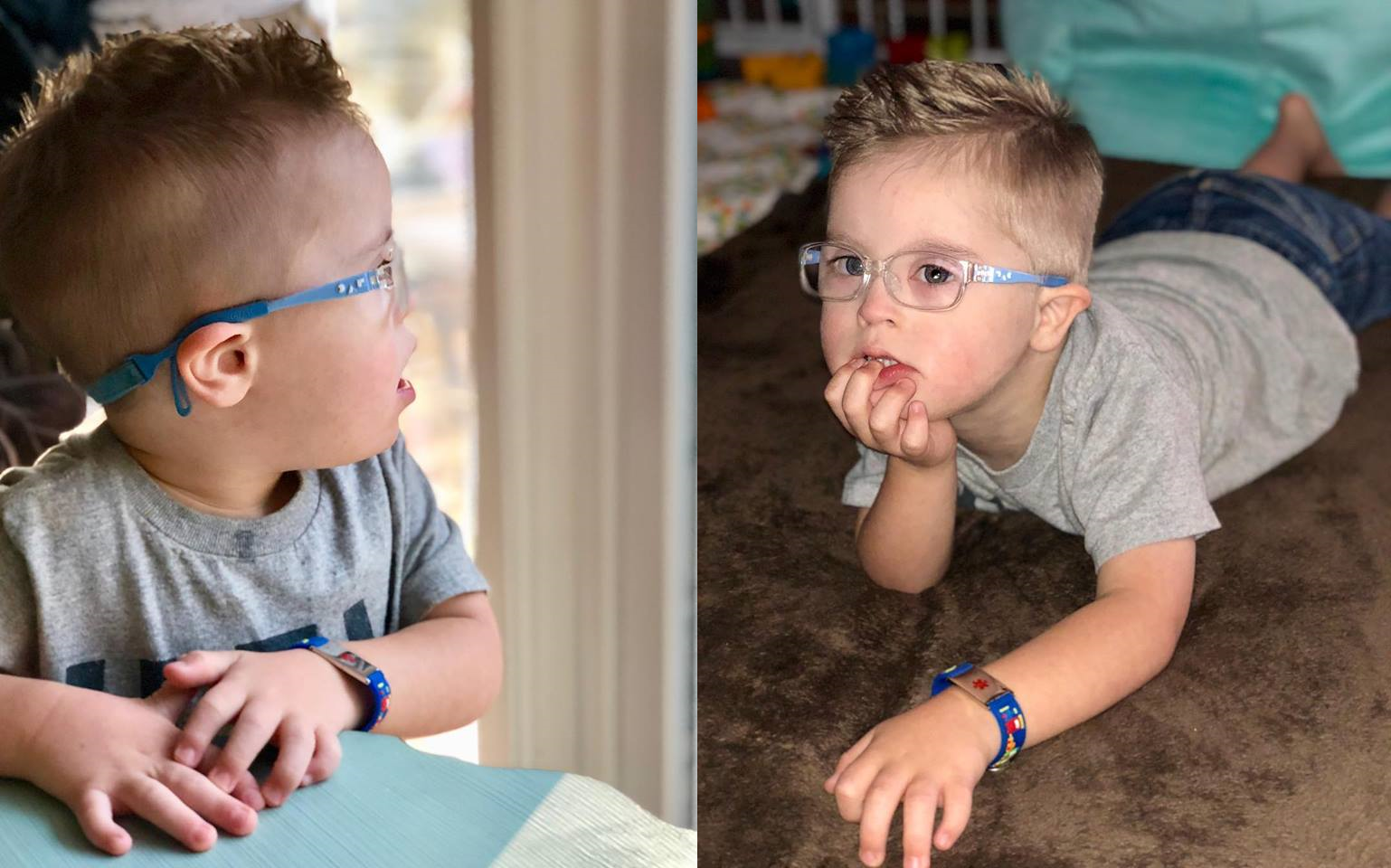

"Ever since Asher started school, I have been super worried that he is going to somehow wander off and get lost. Not only would he not be able to find his way back, but Asher can’t talk yet so it would be hard to communicate. Asher now has a medical ID bracelet with all of his info on it. These bracelets are perfect to list important information about a child's medical conditions, allergies, parent's contact info, and more." - Megan Nash, Downright Perfect
Why a Down Syndrome Card isn’t Enough
A wallet card is not a replacement for wearing a medical ID bracelet or necklace. In an emergency situation, the medical professionals will check for medical ID jewellery first and not assume to look in the patient’s wallet for their medical information. We strongly recommend that a person with down syndrome wears a medical ID bracelet or necklace and also has a medical ID card in their wallet for maximum protection.
Are any Down Syndrome Bracelets Non-Removable?
We offer several different designs that are designed to avoid unintentional removal. When searching for products, look for “safety clasp” as an option. If you have any questions, please contact our customer service team to receive personalized assistance.
Our Down Syndrome Bracelet & Wristband Options
The most popular choice for a medical ID is a bracelet. Shop the right style for your loved one with our comprehensive selection of stainless steel, titanium, sterling silver, and gold.
Our Down Syndrome Necklace Options
If a medical ID necklace is a better choice for your loved one, we offer a wide range of styles and metal types. From durable dog tags to heart-shaped pendants, there is a style for every wearer.



 - US
- US  - Canada
- Canada  - Australia
- Australia 
